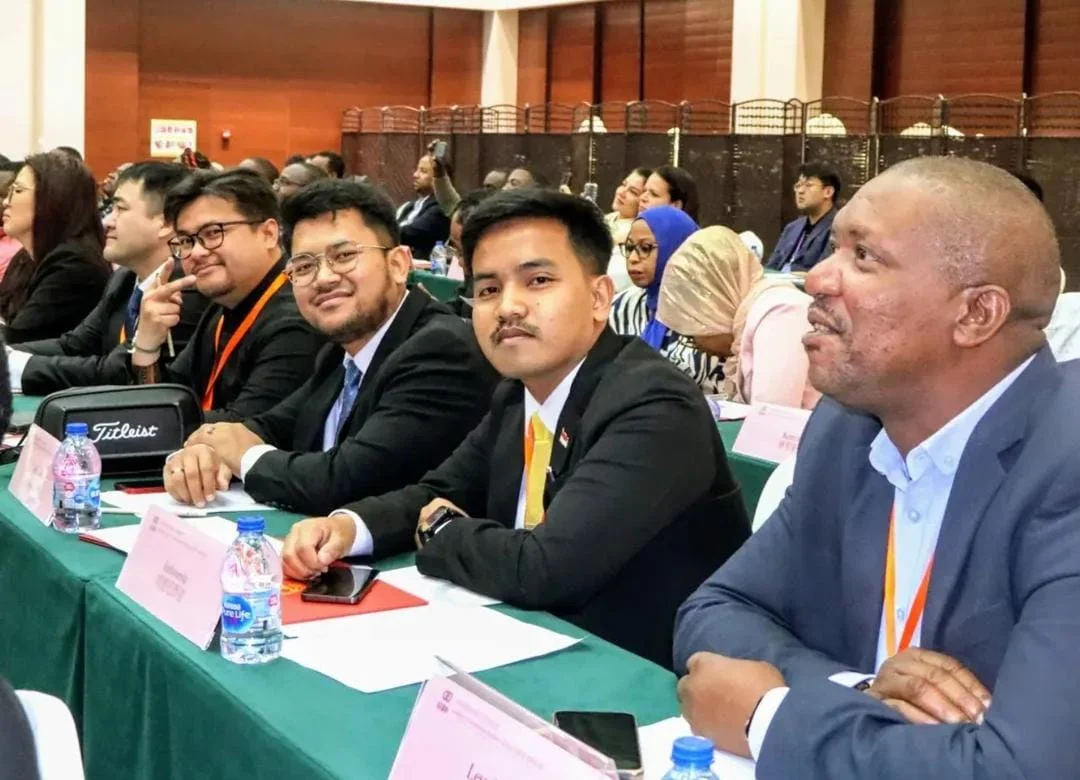When Lurah (village head) of Karuwisi North returned home from Beijing in June 2025, their community welcomed them with pride. Not just for travel, this trip marked Indonesia's local leadership shining on an international stage. The Karuwisi North climate‑smart agriculture project had earned a prestigious Australia Awards honor in Beijing, underscoring how grassroots efforts can earn global impact. This comprehensive article explores the project’s principles, why it matters, and what lessons can be learned by other communities worldwide.
What Is Karuwisi North Climate‑Smart Agriculture?
Karuwisi North climate‑smart agriculture refers to the suite of farming practices led by the Lurah of Karuwisi North, recently spotlighted in Beijing. The project focuses on adapting smallholder farming to climate change through low-cost, high-impact methods:
- Water-efficient irrigation: training farmers to use drip and furrow systems
- Sustainable land management: holding workshops on contour planting and terracing
- Crop diversification: mixing staple food crops with nutrient-rich native plants
- Soil conservation: encouraging composting and cover crops to fight erosion
- Local knowledge integration: mobilizing communal wisdom passed through generations
The Lurah’s trip to Beijing, covered by Berita Kota Makassar, cemented the project’s international credibility. They received formal recognition via Australia Awards, symbolizing both governmental and foreign validation of the work done in Karuwisi North. It was described as a prime example of how Karuwisi North climate‑smart agriculture delivers food security, resilience, and community growth.
Journey to Beijing – Local Vision on International Stage
The story began during a regional climate summit in South Sulawesi, where the Lurah presented local achievements in sustainable agriculture. In response, they were invited to Beijing as part of a broader Asia-Pacific showcase of climate-smart programs supported by the Australian government.
At the Beijing event, sponsored by Australia Awards, the Karuwisi North climate‑smart agriculture initiative stood out for its practical innovations grounded in local tradition. It earned high praise and an official award, marking a milestone: a rural Indonesian community receiving international acclaim for bottom-up climate adaptation.
On returning to Makassar, local media noted the warm welcome: “back from Beijing,” the Lurah was cheered, symbolizing a turning point in international recognition of locally driven sustainability.
Why the Recognition Matters
Empowerment Through Local Leadership
This award proves that climate-smart agriculture is not just for researchers or large NGOs. When empowered with knowledge and peer support, villages like Karuwisi North can lead, turning frontline local farming into models of climate resilience. The Karuwisi North climate‑smart agriculture story flips the script: leadership starts from below, but reverberates globally.
Practical, Scalable Solutions
Oftentimes, climate-smart methods are seen as expensive or tech-heavy. Karuwisi North's approach was grassroots: simple changes, such as composting pits, mulching, and crop rotation—with big impact. Their success shows grassroots innovations are transferable to other rural settings facing similar climate-induced challenges.
Bridging Local and International Partnerships
This recognition links village-level initiatives to international climate networks—opening doors for funding, collaboration, and expertise exchange. Investors, NGOs, and donors now see system-level impact guided by local knowledge. The Karuwisi North climate‑smart agriculture award surely elevates confidence in supporting similar community-level projects.
Promoting Food Security Under Climate Stress
Climate-smart agriculture secures yields and sustains nutrition. In Karuwisi North, yields improved despite irregular rainfall patterns, ensuring food remained affordable and abundant. Government officials and development practitioners can look to this award-winning model when designing resilience-building strategies.
Lessons for Other Villages and Regions
Build on Indigenous Knowledge
Karuwisi North fused modern methods with tribal knowledge, tapping into traditional crop cycles and community norms. For example, “gotong royong” (mutual cooperation) was harnessed to prepare land collectively, making adoption easier and sustainable.
Design Practical Farmer Training
Workshops—led by local farmers—demonstrated how to use mulch, set up mini-irrigation systems, and integrate crops. No jargon, no high-tech. Just effective tools that farmers could implement immediately.
Peer Exchange Networks
Part of the success came through regular farmer meetings, open-field days, and sample farms to showcase success. This created local champions and engaged youth, inspiring others to replicate the Karuwisi North climate‑smart agriculture model.
Record and Share Data
Basic yield tracking and record-keeping helped measure outcomes. These measurable gains made the program credible internationally, helping win the Australia Awards recognition in Beijing.
Seek Platforms and Validation
Recognition came when the Lurah spoke at the Asia-Pacific climate summit—an official platform. Other villages should look for similar venues (national expos, climate clusters, grant hubs) to amplify stories and find support.
What Comes Next for Karuwisi North?
Post-Award Support
With international recognition, Karuwisi North is now eligible for follow-up support—from grants to technical training—to scale and refine methods. The Australia Awards visibility could unlock bilateral exchanges and new funding.
Scaling Across Indonesia
Younger village heads and sub-district leaders are already expressing interest in replicating the model in nearby villages. Early adopters are waving gardening success as evidence that climate-smart agriculture can be community-led.
Community Pride and Youth Engagement
Young people in Karuwisi North now see farming as a viable and respected profession. The Beijing success changed perceptions—youth are joining, not leaving, creating a virtuous cycle that binds community to climate-smart agriculture.
Data for Advocacy
Karuwisi North officials plan to document results and present them at provincial forums for agriculture, climate change, and rural development. Results-based advocacy may influence future regulations or policy support.
Small Village, Big Impact
From a humble Sulawesi village to a Beijing stage, the Karuwisi North climate‑smart agriculture project is proof that climate action doesn’t depend on scale—it depends on strategy, community, and leadership. Recognized by Australia Awards in Beijing, this initiative balances tradition, low-tech solutions, and collective will to farm smarter and live better in a warming world.
For other villages, regions, and rural leaders, the takeaway is clear: climate-smart agriculture starts with community, grows with action, and is amplified through strategic exposure. Karuwisi North has shown how to move climate resilience from theory to harvest—and earned global applause.
Read More






 Monday, 02-03-26
Monday, 02-03-26







